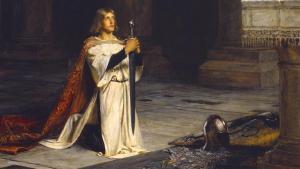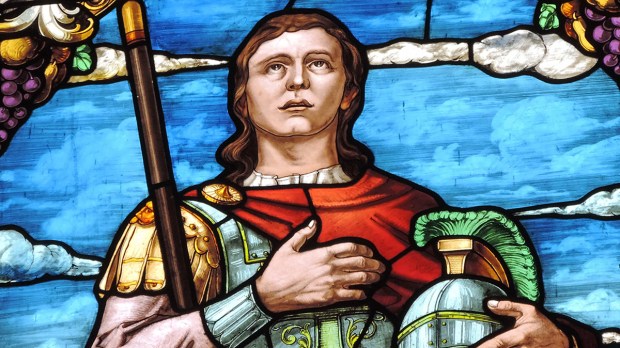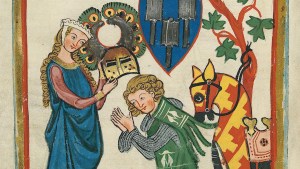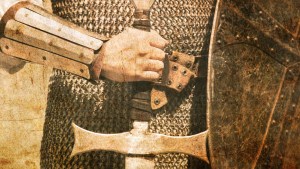What does a modern-day knight look like? To answer this thorny question, Aleteia has revived an ancient code of chivalry from the 12th century. These rules dictated the conduct of knights who wished to cultivate holy virtues and awaken the noblest feelings in themselves. At first glance, such a code may seem outdated or inappropriate for the modern age. But is it really? Aleteia has asked priests to revisit and update for us the precepts of this code—something from which our modern society could gain great inspiration. Together let’s foster a new spirit of chivalry!
This week, Fr. Bernard Peyrous studies one of the virtues of a chivalrous knight: the love of his country. Fr. Peyrous is a priest, member of the Emmanuel Community, and former rector of the Shrine of Paray-le-Monial, as well as the author of a book in French on a Christian approach to patriotism.
You shall love the country where you were born
Knight! Love your country, because you know that no one is born anywhere by chance. We believe in a providential God, so coincidence does not exist. The Lord loves the Earth so much that He has blessed every place. As a Christian knight, you must place your life under God’s blessing and therefore love the country and the period in which you were born.
In 1914, there were only 53 nations in the world … compared to more than 190 today! All nations need to find their soul, their deepest vocation, to respond to God’s call. St. John Paul II explained this very well in the case of Poland in his book-testament: Memory and Identity. This means that if I am born in the United States of America, England, or the Philippines (just to give a few examples), I must participate in its vocation. It’s therefore necessary to get to know one’s country, its history and its culture in order to become imbued with this vocation. And a country’s vocation goes beyond its own borders; it has a role to play, through solidarity and fraternity, on the world stage.
Benedict XVI addressed the question of national identity during his visit to France in 2008, comparing all nations to a large family where each member is both different and indispensable:
I am convinced, in fact, that nations must never allow what gives them their particular identity to disappear. The fact that different members of the same family have the same father and mother does not mean that they are undifferentiated subjects: they are actually persons with their own individuality. The same is true for countries, which must take care to preserve and develop their particular culture, without ever allowing it to be absorbed by others or swamped in a dull uniformity. “The Nation is in fact”—to take up the words of Pope John Paul II—“the great community of men who are united by various ties, but above all, precisely by culture. The Nation exists ‘through’ culture and ‘for’ culture, and it is therefore the great educator of men in order that they may ‘be more’ in the community” (Address to UNESCO, 2 June 1980, no. 14). (…) Consequently, within the current institutional framework and with the utmost respect for the laws that are in force, it is necessary to find a new path, in order to interpret and live from day to day the fundamental values on which the Nation’s identity is built.
To enable the nation to fulfill its vocation, we must use our own nation’s gifts and national character, keeping in mind that each country has its own richness and unique traits. How can we live this love of country? By believing in our nation’s vocation, embodying it and proclaiming it. This implies changing our outlook, and making it positive. Knight, welcome, practice and foment all that is virtuous, especially all that comes from simple and humble people, for your strength is at the service of the weak. Take an oath that you will no longer complain about your country. Avoid at all costs settling into the permanent war that consumes society, but on the contrary encourage what is best in your compatriots.
Finally, a knight should especially know and pray to the patron saints and protectors of his country. In the United States of America, the patron saint is Mary under the title of the Immaculate Conception, but it’s a good idea to also pray to American saints such as St. Elizabeth Ann Seton, St. John Neumann, St. Kateri Tekakwitha, or St. Damien of Molokai, just to name a few.





